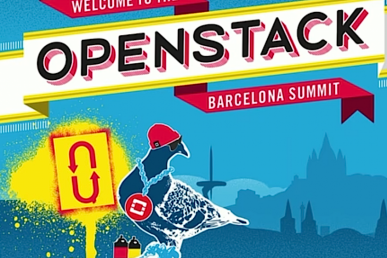Here’s the news from the OpenStack world you won’t want to miss — the musings, polemics and questions posed by the larger community.
Got something you think we should highlight? Tweet, blog, or email us!
In case you missed it
We’ve talked a lot about how OpenStack is catnip for recruiters, but we’re also seeing the flip side: if you can’t find enough people who know what to do with it, you may end up hating it.
That’s according to Daniel Chow, COO and CTO at Silicon Mechanics, in an opinion piece titled "I love open-source OpenStack. Here’s why you may not." for Computer World. It’s worth reading in full, but the crux of why you might come to despise OpenStack depends on who you work with.
"The costs of acquiring proficient open-source OpenStack talent is high, and it may be difficult for your company or organization to retain that talented staff for long due to market forces and increasing demand for their services. For example, if you elect a flavor from a Tier 1 or turnkey provider, proficiency now requires a level of specialization in that particular version — and the provider you choose will likely have already acquired the most proficient staff in the industry."
If you’re more interested in how to get one of those jobs, Cody Bunch — who co-wrote OpenStack Cookbook and #vBrownBag podcast — takes on a timely AskOpenStack question about what distributions are "mandatory" to become an OpenStack expert.
"The short answer to these questions, is that no, no specific Linux or OpenStack distribution is required to become an expert. That being said, some familiarity with Linux will give you a good foundation for working with OpenStack. Additionally, an OpenStack distribution will help ease the learning curve associated with learning OpenStack."
And in other job news, OpenStack Foundation board member and major longtime contributor Monty Taylor announced that he left Hewlett-Packard for IBM.
What does this mean for you? Stefano Maffulli, former OpenStack developer advocate now at DreamHost, thinks it may signal a push for OpenStack private clouds.
"HP clearly is targeting the enterprise market, with their public cloud used mainly as a supporting mechanism for the private clouds," he writes on his blog. "I think OpenStack will benefit from more focus on public clouds: I have the feeling those are taken for granted…Hopefully lots of positive changes aimed at public cloud users will keep going upstream (and we can avoid creating yet another working group in openstack-land)."
/
An evening w/ @OpenStack guests @sparkycollier @TomFifield @amprice88 #OpenStackInDay15 ,Welcome to India #OpenStack pic.twitter.com/Q27CXObNHC
— Sajid Akhtar (@mail2fashion) August 7, 2015
And we are done w/ #OpenStack workshop #OpenStackINDay15 Day 1 ! Selfie with team @aptira @koolhead17 pic.twitter.com/Tzwrdu3Qfl
— Sajid Akhtar (@mail2fashion) August 7, 2015
https://twitter.com/notmyname/status/629399875570941952
Love my new sticker from @GARY805 – I'm sure @krishnan @blueboxjesse @randybias will appreciate! https://t.co/OnONNL3isq
— Niki Acosta (@nikiacosta) August 6, 2015
All #OpenStack needs successful massive #OpenStack public clouds. Happy to see @e_monty drive that ideal at @IBMcloud http://t.co/ClSl1RNF9x
— Thierry Carrez @[email protected] (@tcarrez) August 4, 2015
If you are a student/govt employee, apply for a discounted registration to attend the #OpenStack Summit Tokyo: http://t.co/yyaHEHEax9
— OpenStack (@OpenStack) August 5, 2015
n
https://twitter.com/LanceBragstad/status/628317505606582272
I completed the First App On OpenStack Tutorial using Shade. Live on http://67.205.63.105/ Code on https://t.co/FEMJWO0bTa
— Stefano Maffulli @[email protected] (@smaffulli) August 3, 2015
https://twitter.com/alexgrahamuk/status/628262595288559616
We feature user conversations throughout the week, so tweet, blog, or email us!
Cover Photo by Caden Crawford // CC BY NC
- Exploring the Open Infrastructure Blueprint: Huawei Dual Engine - September 25, 2024
- Open Infrastructure Blueprint: Atmosphere Deep Dive - September 18, 2024
- Datacomm’s Success Story: Launching A New Data Center Seamlessly With FishOS - September 12, 2024

)










